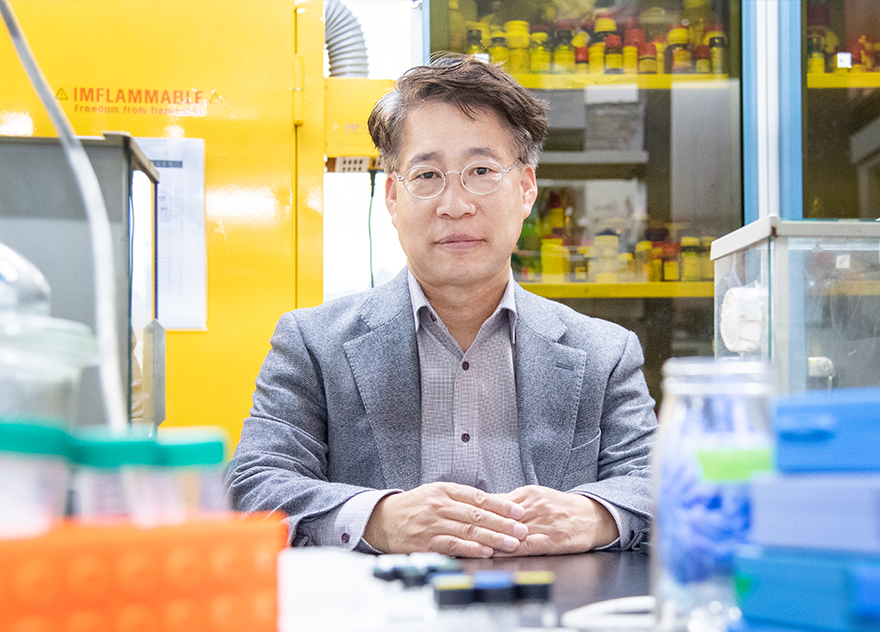
ROS-Sensitive Degradable PEG-PCL-PEG Micellar Thermogel
정병문 (bjeong@ewha.ac.kr)
화학·나노과학전공
A reactive oxygen species (ROS)-sensitive degradable polymer would be a promising material in designing a disease-responsive system or accelerating degradation of polymers with slow hydrolysis kinetics. Here, we report a thermogelling poly(ethylene glycol)-polycaprolactone-poly(ethylene glycol) (PEG-PCL-PEG) triblock copolymer with an oxalate group at the middle of the polymer. The polymers formed micelles with an average size of 100 nm in water. Thermogelation was observed in a concentration range of 8.0−37.0 wt.%. In particular, the aqueous PEG-PCL-PEG triblock copolymer solutions were in a gel state at 37 oC in a concentration range of 25.0-37.0 wt.%, whereas the aqueous PEG-PCL diblock copolymer solutions were in a sol state in the same concentration range at 37 oC. Thus, the gel depot could dissolve out once degradation of the triblock copolymers occurred at the oxalate group as confirmed by the in vitro experiment. In vivo gel formation was confirmed by injecting an aqueous PEG-PCL-PEG solution (36.0 wt.%) into the subcutaneous layer of rats. The gel completely disappeared in 21 days. A model polypeptide drug (cyclosporine A) was released over 21 days from the in situ formed gel. The micelle-based thermogel of PEG-PCL-PEG with ROS-triggering degradability is a promising injectable material for biomedical applications.
* Related Article
Hyun Jung Lee and Byeongmoon Jeong*, ROS-Sensitive Degradable PEG–PCL–PEG Micellar Thermogel. Small 2020, 16, 1903045
